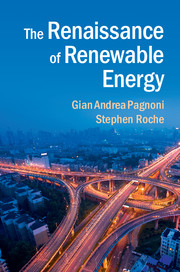Preface
Published online by Cambridge University Press: 05 March 2015
Summary
This book began with a skiing trip in the Alps in January 2010. Gian Andrea and I had known each other since 1990, when, as students, we shared an apartment in Ireland. Having lost touch for more than a decade, we had recently renewed the friendship. Conversations between old friends tend to cover a lot of ground very quickly. We filled each other in on relationships past and present, on travels and travails, past and current work, and where we thought we were heading. I’d been working as a translator and editor for several years. Gian Andrea had set up an environmental consulting company with other scientists from the University of Ferrara and balanced this work with additional teaching and writing.
He had always been a practical man. In kitchen table conversations during our student days, he didn’t shy away from controversial positions, exposing the contradictions within many closely held beliefs. He once declared, to the horror of several humanities’ students, that he felt no attachment to language, and that the disappearance of his native Italian would be of no consequence provided it were replaced by a more efficient substitute, such as, for example, English. I was bemused and a little shocked by his lack of sentimentality, but I appreciated his dedication to objectivity.
- Type
- Chapter
- Information
- The Renaissance of Renewable Energy , pp. ix - xPublisher: Cambridge University PressPrint publication year: 2015



